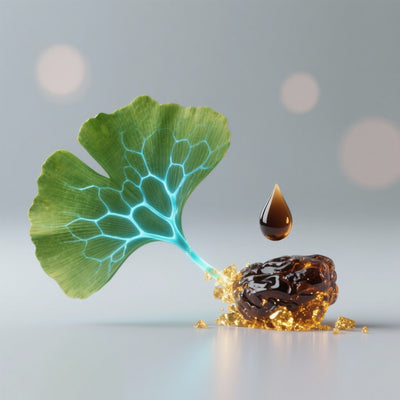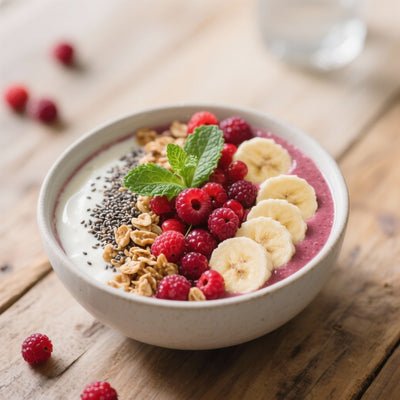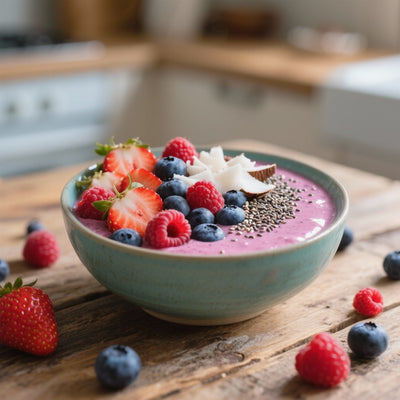How to boost your libido after 40: The step-by-step guide
Turning 40 is a pivotal moment, a time of significant change, both personally and physically. Among these transformations, a decrease in sexual desire is often a taboo subject, yet incredibly common. Far from being inevitable, this fluctuation in libido is an invitation to better understand your body and adopt new habits to rekindle the flame. This guide isn't simply a list of miracle cures, but a holistic and supportive approach to help you rediscover fulfilling intimacy. Together, we'll explore the biological mechanisms, nutritional levers, the importance of mental well-being, and strategies for strengthening the connection with your partner. Get ready to take back control of your desire.
Why does libido change after 40? Understanding the underlying causes
Before seeking solutions, it is essential to understand the reasons for this change. A decreased libido is rarely linked to a single factor. Rather, it is a complex mosaic of interacting hormonal, physical, and psychological elements.
The key role of hormones: testosterone and estrogen
In both men and women, sex hormones play a major role. After age 40, their natural production begins to decline gradually.
- In men: Testosterone, the main hormone of desire, decreases by about 1% per year starting around age 30-40. While this decline is slow, its cumulative effects can be felt on energy, mood, and of course, libido.
- In women: Perimenopause, which precedes menopause, is accompanied by significant fluctuations in estrogen and progesterone levels. These variations can lead to vaginal dryness, increased fatigue, and a decreased libido. Testosterone, also present in small amounts, also declines, impacting sexual drive.
The impact of stress and chronic fatigue
The forties are often a time of intense pressure: career, family responsibilities, financial management... This chronic stress is the number one enemy of libido. Why? Because it triggers an overproduction of cortisol, the stress hormone. To produce cortisol, the body draws on the same precursors as those needed to produce sex hormones.
"Cortisol and sex hormones are in direct competition. When the body is in permanent 'survival' mode due to stress, the reproductive function, and therefore libido, is put on the back burner."
The resulting fatigue only makes things worse. It's hard to feel desire when the only thing you long for is your bed... to sleep in.
Psychological and relational factors
Desire doesn't originate in the body, but in the mind. Daily worries, a diminished self-image due to physical changes, unresolved conflicts within the couple, or simply a settled routine can extinguish the flame. Poor communication about each partner's desires and expectations is often a major cause of emotional and physical distance. For more tips on everyday well-being, explore our lifestyle blog .
Food, your first ally for regaining your appetite
What you put on your plate has a direct impact on your hormonal balance, energy levels, and blood circulation—three pillars of a healthy libido. It's not about following a restrictive diet, but about intelligently incorporating beneficial foods.
Essential nutrients for sexual vitality
Focus on a diet rich in specific nutrients to support hormone production and energy:
- Zinc: Essential for testosterone production. It is found in oysters (the most famous aphrodisiac!), seafood, pumpkin seeds, and red meat.
- Omega-3s: These good fats improve blood flow and contribute to hormonal balance. Choose oily fish (salmon, mackerel, sardines), flax and chia seeds, and walnuts.
- B vitamins: These are crucial for energy and stress management. They are found in leafy green vegetables, eggs, legumes, and whole grains.
- Vitamin D: Often called the "sunshine hormone", it is directly linked to higher testosterone levels.
Incorporating these foods into delicious dishes is easier than it seems. Discover inspiring ideas on our recipe blog .
The importance of hydration and foods to limit
Drinking enough water is essential for maintaining good energy levels and natural lubrication. Conversely, excessive alcohol, refined sugar, and ultra-processed foods can drain your energy and disrupt your hormonal system. Moderation is key.
The power of movement: moving more to desire more
Regular physical activity is a real libido booster, acting on both the body and mind. Its benefits are numerous and scientifically proven.
- Improved blood circulation: Good circulation is essential for sexual arousal, both for male erection and female lubrication. Endurance sports such as running, swimming, or cycling are excellent.
- Increased hormone levels: Weight training or HIIT (high-intensity interval training) sessions can stimulate testosterone production.
- Stress reduction: Sport releases endorphins, the "happy hormones", which combat the harmful effects of cortisol and improve mood.
- Self-confidence: Feeling stronger, more toned and more comfortable in one's body is a powerful psychological aphrodisiac.
The goal is not to become a top athlete, but to find an activity you enjoy and practice it regularly, for 30 to 45 minutes, 3 to 4 times a week.
Natural aids and supplements: a targeted boost
In addition to a healthy lifestyle, certain herbs and supplements can offer valuable support. However, it is essential to consult a healthcare professional before starting any supplementation to avoid contraindications.
Adaptogenic plants and substances
Adaptogens help the body to better resist physical and mental stress, a key factor in decreased libido.
- Peruvian Maca: Nicknamed "Peruvian ginseng", it is renowned for increasing energy, endurance and libido in both men and women, without directly affecting hormone levels.
- Ginseng: Particularly Korean red ginseng, has been used for centuries to combat fatigue and improve sexual function, especially in men.
- Tribulus Terrestris: This plant is often used to support testosterone levels and improve male libido.
- Ashwagandha: A master plant in Ayurvedic medicine, it is very effective in reducing stress and cortisol, thus unlocking the potential of your libido.
For more detailed information on the benefits of plants and natural active ingredients, please visit our main information blog .
Communication and intimacy: recreating the connection
The most important, and often most overlooked, dimension is the emotional connection with your partner. A healthy libido thrives on intimacy, tenderness, and open communication.
Dare to talk about your desires and your inhibitions
Express your feelings without judgment or accusation. Talk about what's weighing you down, but also about what you'd like. Sometimes, simply verbalizing a decrease in desire can defuse the situation and pave the way for finding solutions together. Ask questions, be curious about the other person.
Plan moments of intimacy
It might seem unromantic, but "planning" time for just the two of you, screen-free and child-free, is crucial for breaking out of a routine. It's not about scheduling sex, but about creating sanctuary time to reconnect, touch, kiss, and let desire rise naturally, without performance pressure.











